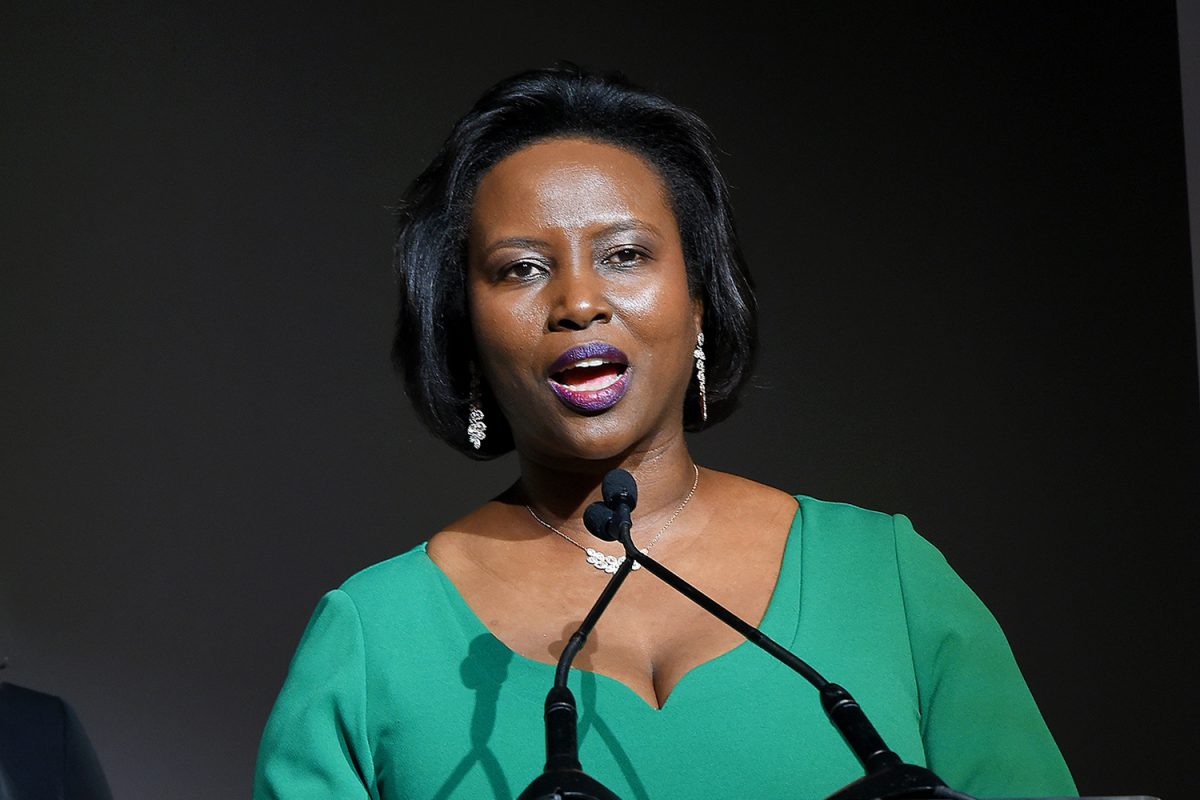PORT-AU-PRINCE, (Reuters) – The widow of slain Haitian President Jovenel Moise today accused shadowy enemies of organizing his assassination to stop democratic change, as a struggle for power intensified in the Caribbean nation.
Haiti has been reeling since Moise was gunned down early on Wednesday at his home in Port-au-Prince. Haitian authorities said foreign, trained assassins comprised of 26 Colombians and two Haitian Americans carried out the assassination. Colombian media suggested the Colombians may have been hired as security for the president.
Martine Moise, who was also wounded in the attack, said her husband was targeted for political reasons.
“You know who the president was fighting against,” she said in a recording released on Twitter, without naming anybody.
“They sent mercenaries to kill the president at his home with members of his family because of roads, water, electricity and referendum as well as elections at the end of the year so that there is no transition in the country.”
The late president, who spoke of dark forces at play behind years of unrest – rival politicians and oligarchs angry about his attempts to clean up government contracts and politics – had proposed a referendum to change Haiti’s constitution.
The referendum, scheduled for Sept. 26 along with presidential and legislative elections, could abolish the prime minister’s position, reshape the legislative branch and strengthen the presidency.
Moise’s killing has clouded those plans and led to political disarray in Haiti’s government, which has appealed for troops from the United States and the United Nations.
The United States said it has no plans to provide Haiti with military assistance, while the request to the U.N. would need authorization from its Security Council.
Late on Friday, the man Moise appointed as prime minister just before the assassination claimed the right to lead Haiti. But competing claims by political rivals have fueled uncertainty as the government scrambles to maintain order and provide answers to the public about the killing.
Ariel Henry, a neurosurgeon who was named prime minister by the late president on Monday, told Reuters he was now the highest authority in Haiti, not interim Prime Minister Claude Joseph, and that he was forming a government.
“After the president’s assassination, I became the highest, legal and regular authority because there was a decree nominating me,” he said in a phone interview late on Friday.
Henry said his government would create a new electoral council – given the previous one was considered too partisan – which would determine new dates for elections.
“I don’t know what date they will be, all I know is that we cannot take too long to do these elections. We need to do them as soon as possible,” he said.
But Henry has yet to be sworn in, and Joseph, who was named interim prime minister in April, has stayed put, spearheading the response to the assassination, appealing to the United States for support and declaring a 15-day state of emergency.
The power struggle has created confusion over who is the legitimate leader of the country’s 11 million people.
Elections Minister Mathias Pierre said acting premier Joseph would keep that role until the Sept. 26 vote.
Meanwhile, Haiti’s Senate, which currently comprises just a third of its usual 30 senators, nominated its head Joseph Lambert on Friday to act as the interim president, a document reviewed by Reuters showed.
Henry said he was “ready to lead the country with all those who wanted to move forward” when asked if he would govern alongside Lambert.
Haiti’s 1987 constitution stipulates the head of the Supreme Court should take over as interim president. But amendments that are not unanimously recognized state that it be the prime minister, or, in the last year of a president’s mandate – as was the case with Moise – that parliament should elect a president.
Further complicating matters, the head of the Supreme Court died last month after contracting COVID-19 in one of the few countries yet to start a vaccination campaign.
There also is no sitting parliament as legislative elections scheduled for late 2019 were postponed amid political unrest.
INVESTIGATION UNDERWAY
Haitian officials have not given a motive for the assassination or explained how the killers got past Moise’s security detail.
Taking power in 2017, Moise’s administration was beset by mass protests, first over corruption allegations and his economic record, then over his increasing grip on power.
Seventeen of the men suspected of involvement in his assassination were captured after a gun battle with Haitian authorities in a hillside suburb of Port-au-Prince, while three were killed and eight are still at large, police say.
Colombian media reports from outlets including Semana and El Tiempo suggested the Colombian suspects were hired to work as security for politicians in Haiti, among them, Moise.
Semana cited conversations with other former soldiers and family members of some of the men. El Tiempo said some of the men were contracted to provide security to “several dignitaries” in Haiti for a three-month trial period.
Reuters was unable to verify those reports. Colombian police declined to specify on Saturday who hired the men, saying the matter is still under investigation. Officials have said the soldiers were hired by four companies, without naming them.
Colombian officials acknowledge soldiers are often recruited to work as mercenaries in other countries upon retirement from the army. Colombia has requested more information from Haiti about what the soldiers are suspected of participating in.
Colombian investigators took a Friday evening flight to Port-au-Prince to help Haitian authorities with the probe into the assassination, said General Jorge Luis Vargas, head of Colombia’s national police.

